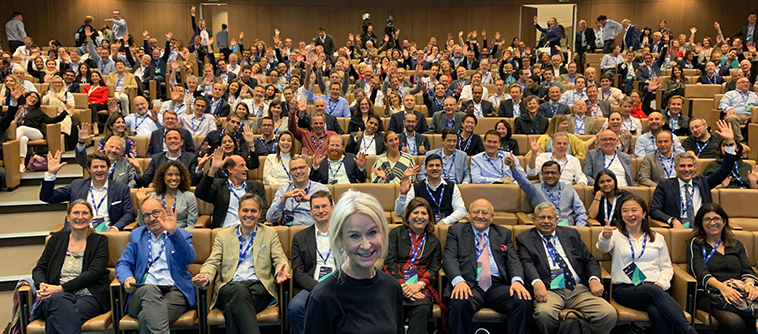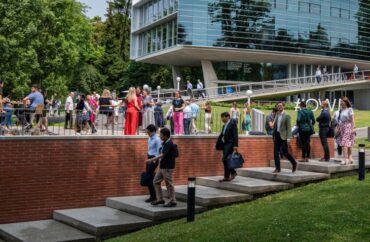This was the message 12-year-old Severn Cullis-Suzuki delivered to world leaders at the Earth Summit in Rio de Janeiro in 1992.
Almost three decades later, many of the world’s environmental and social challenges remain unsolved (and in many cases have exacerbated) and we are witnessing a new generation of activists – led by 16-year-old Greta Thunberg – imploring leaders to step up.
So what role can business leaders play?
This is the question posed by the Annual International Alumni Event 2019, held at the IMD campus on 27-28 September. Hot on the heels of the UN Climate Action Summit in New York, the meeting of former participants takes a closer look at sustainability in leadership and how business can aid the transition to a more sustainable economy.
Doing well by doing good
Jean-François Manzoni, President of IMD, kicked-off the event with a talk on the importance of “doing well by doing good” – an approach to business that he says is becoming ever more important in today’s increasingly problematic world.
If an organisation can find an innovative and intelligent way to solve one of the world’s problems, then they should succeed financially, said Professor Manzoni.
But this transformation is also being driven by a powerful new force – consumers who are demanding change. In today’s world, the divide between the concerned citizen and business executive has narrowed, and soon it will only be possible to do well by contributing to society.
To react to this monumental shift, IMD has developed a new policy, instilling the belief that a shared responsibility is essential for the prosperity of individuals, businesses, communities and nations. “We support responsible leaders who act with integrity, contribute to sustainable performance and have a positive impact on the world,” said Professor Manzoni.
Transform or disappear
Annika Falkengren, Managing Partner at Lombard Odier and IMD Foundation Board Member, delivered the keynote speech to kick off this important alumni event.
Echoing the same sentiments as Professor Manzoni, Falkengren also acknowledged the tectonic shifts taking place in the global economy. “Economic growth at the expense of society is not acceptable,” she said. There is a global movement taking place – led by the likes of Thunberg – and we ignore it at our peril.
Sustainability is also, however, the most exciting investment opportunity for a generation, she added.
At the heart of this challenge is the intersection between human development, economic growth and the planet. Companies that fail to recognise this challenge risk disappearing altogether. Customers will no longer buy your products or services and you will be starved of talent and capital, she warned, and many major incumbents could be lost along the way.
Eagles vs ostriches
The sustainability revolution is also, of course, a huge opportunity, said Falkengren – but only for those businesses who react in time.
To demonstrate her point, Falkengren described how businesses can now be split into two categories – ostriches and eagles.
The ostriches are those at risk of losing out – or disappearing altogether. Burying their heads in the sand, they fail to see or act upon the need for a sustainable growth strategy, and will suffer the consequences.
Eagles, on the other hand, have a far-sighted vision and are committed to this sustainability revolution.
The eagles, of course, will be the winners of the sustainability revolution.
The good news, Falkengren said, is that the transition to a more sustainable economy has already begun. Our current economic model is broken, dirty, horizontal and exclusive, said Falkengren.
Fortunately, it is also on its way out, and is making way for a cleaner, greener, fairer world.

